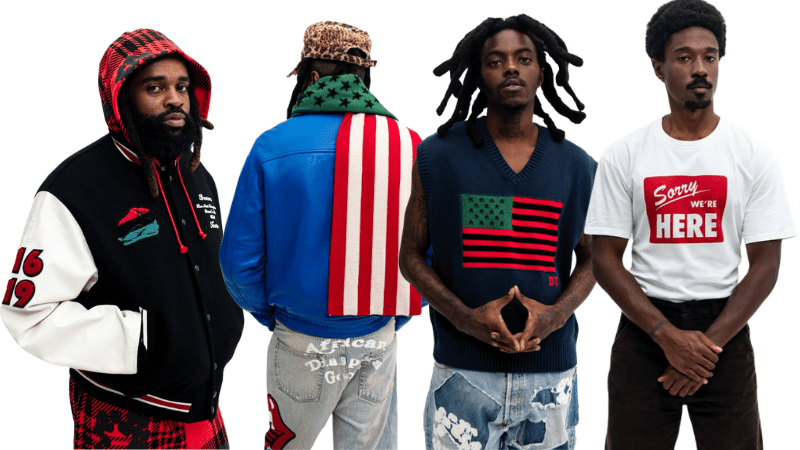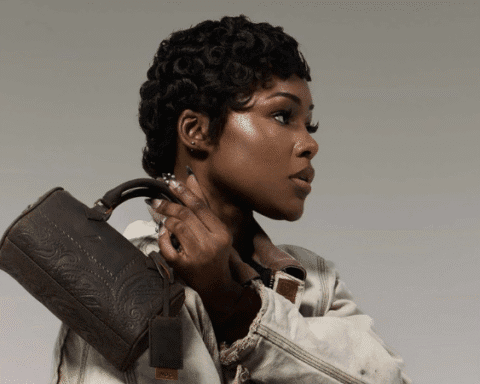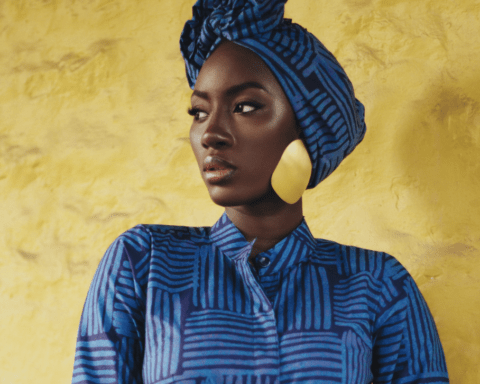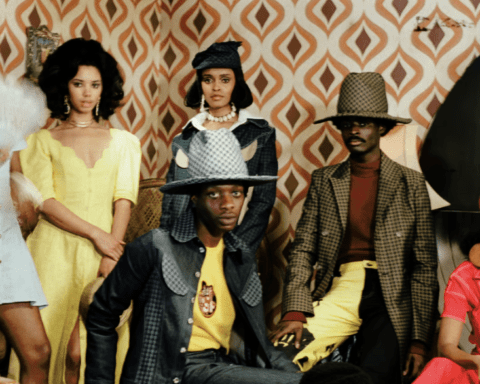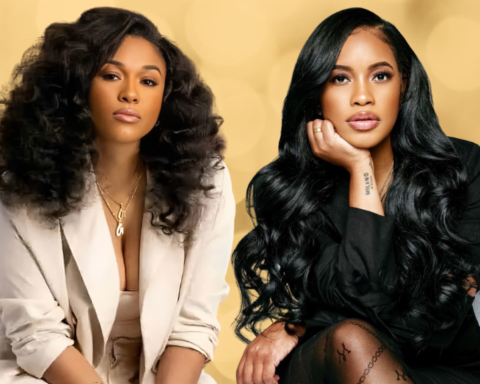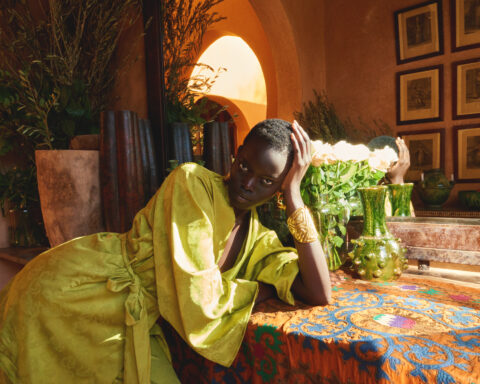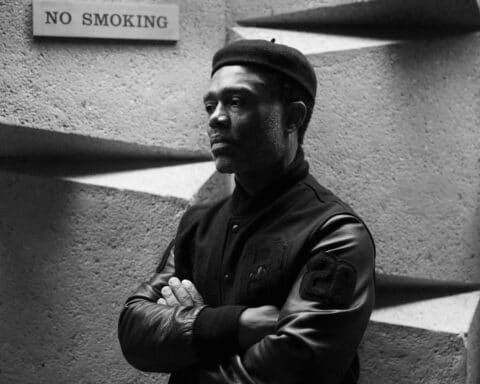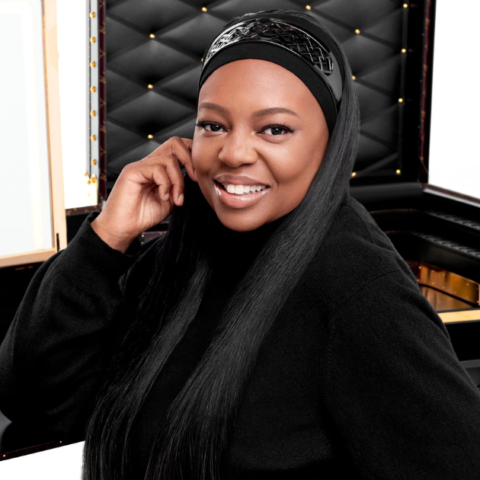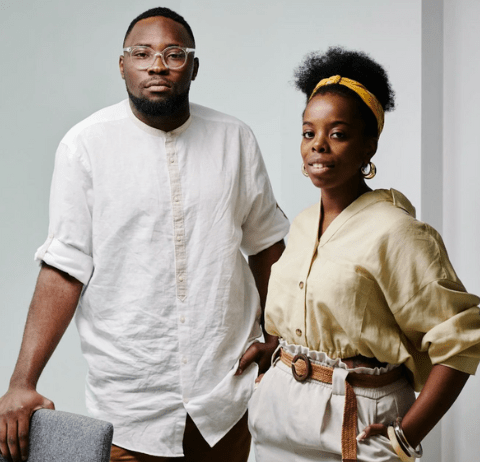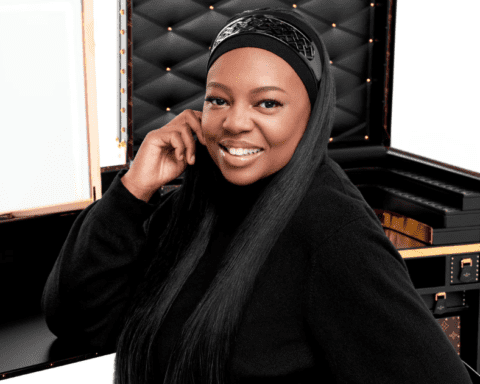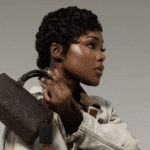Founded by Tremaine Emory in 2019, Denim Tears is a fashion label built on the principle that clothing can carry history.
The brand, reportedly generating around $10 million annually, has become known not just for bold drops and coveted collaborations, but for embedding meaning into every stitch.
The Founder
Tremaine Emory—raised in Queens, New York, with roots in Atlanta—has long described himself as a storyteller first, designer second.
His career spans music, art, and fashion, including work with Kanye West, Frank Ocean, and influential roles at Marc Jacobs and Stüssy.
In 2022, Emory made headlines as Supreme’s first Black creative director, but Denim Tears remains his most personal canvas.
The Design: Symbols With Substance
From the outset, Emory has insisted that Denim Tears “isn’t about fashion for fashion’s sake.” Every collection begins with research: trips to the South, visits to historic plantations, and deep dives into Black American memory.
The brand’s signature motif—a wreath of white cotton blossoms—was inspired by Emory’s visit to the Whitney Plantation in Louisiana, one of the only museums devoted exclusively to the history of slavery in America.
“Cotton is the fabric of our lives, but also of our history,” Emory told GQ in a 2023 interview. “For Black Americans, cotton is a wound and a crown—it’s what built the wealth of a nation and also what our ancestors bled for.”
This wreath appears on jeans, jackets, and sweatshirts, stitched or printed in a way that can’t be ignored.
For Emory, the design is a dual symbol: it honors the legacy and suffering of enslaved people, while also serving as a badge of survival, creativity, and resilience.
Denim Tears’ collections often reference other chapters of the Black experience—sometimes directly, as with 2021’s “Plantation” drop, or more abstractly, through patterns, colors, and wordplay.
Many pieces feature archival photos, handwritten notes, or reimagined American flags, prompting wearers and viewers alike to confront the narratives beneath the surface.
More Than Merch: Fashion as Dialogue
Emory is outspoken about wanting Denim Tears to spark conversations, not just drive hype.
He’s pushed back on the fashion industry’s tendency to “borrow” Black culture without context or credit, using his platform to educate and challenge audiences—whether it’s through museum installations, essays, or panel discussions.
Key collaborations underscore the message. The Levi’s x Denim Tears partnership, for example, featured cotton-wreath jeans and jackets—an intentional subversion of classic Americana, designed to “force a conversation about what American heritage really means.”
Pieces from this collaboration now reside in The Met’s permanent collection, a rare nod from the art establishment.
“My work is about memory. My work is about trauma, yes, but also about joy and triumph and the full scope of Black life,” Emory told Business of Fashion.
Achievements and Impact
In just a few years, Denim Tears has moved from cult favorite to global force. The brand’s presence spans high-profile pop-ups, museum collections, and editorial spreads in Vogue, GQ, and i-D.
Collaborations with UGG, Converse, and even Dior have further cemented Denim Tears as both a commercial and cultural powerhouse.
Yet, Emory has kept control—eschewing outside investors and corporate hype in favor of organic growth and narrative integrity.
Looking Ahead
With a flagship store open in SoHo, New York, and a recently announced international expansion, Denim Tears continues to redefine what it means to be a Black-owned brand at scale.
Emory’s vision is unflinching: “The job isn’t just to sell clothes,” he says. “It’s to honor, to question, to remember—and to move the culture forward.”
Subscribe to our newsletter for insights on Black founders, fund managers, and the business of capital.

